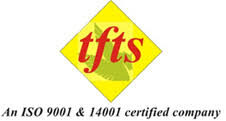
India’s Leading Facility Maintenance Company TFTS Shares
Modern life has indeed bestowed us with incredible technological advancements that have revolutionized our daily routines and made our lives more comfortable. One such innovation that stands out is the HVAC (Heating, Ventilation, and Air Conditioning) system. HVAC systems have become an integral part of our homes, providing us with the ideal indoor climate, irrespective of the external weather conditions. However, with these comforts come responsibilities, and one crucial task is the maintenance of your HVAC system.

Why does maintenance matter?
Maintenance of HVAC (Heating, Ventilation, and Air Conditioning) systems is crucial as it ensures efficient operation, minimizes frequent breakdown, prolongs equipment lifespan, improves indoor air quality, and reduces operational costs thus enhancing overall well-being and productivity.
Trendsetters Facilities and Technical Services Delhi NCR’s leading HVAC maintenance company shares a few maintenance tips that will keep your commercial HVAC system running smoothly.
How to maintain the HVAC Systems in commercial establishments?
Mr. Atul Mahajan, Director of TFTS shares 6 ways that will help you to maintain the HVAC systems. They are:
1. Regular Inspection
Just like any other machinery, your commercial HVAC system needs regular check-ups. This involves checking for leaks, loose connections, and any signs of wear and tear. A professional technician can identify problems early and recommend necessary repairs. This will help you prevent potential breakdowns and save money in the long run. Regular inspection can also help you save energy and improve the air quality.
2. Air Filter Cleaning
Air filters in your HVAC system play a vital role in maintaining indoor air quality. Over time, they become clogged with dust and particles, reducing system efficiency. Replace filters every three months or as and when required depending on usage and the type of filter.
However, if your commercial setting is exposed to a high volume of airborne particles like pollen, dust, smoke, and various other contaminants, it’s advisable to inspect and possibly change the filters every two weeks. This increased frequency helps ensure that your HVAC system continues to operate effectively in such challenging environments.
3. Visual Inspection
Sometimes a simple visual inspection of your HVAC system is essential. Examine major and minor components for signs of issues like disconnected pipes, rust, leaks, or dirty refrigerant lines. Ensure vents are unobstructed and free from debris like leaves or mold. Maintain a minimum three-foot clearance space around heating and cooling appliances for safety.
4. Duct Cleaning
Your HVAC system’s coils and ducts are like its arteries and veins. They transport air to and from different parts of your commercial space. Over time, dust and debris can accumulate on these surfaces, hindering airflow and reducing efficiency.
Cleaning these components, especially the evaporator and condenser coils, can significantly improve system performance. HVAC ducts form a system of pipes delivering cool air indoors. Damaged ducts with leaks waste cooling efficiency. Regularly inspect and maintain duct sections to ensure tight, clean connections.
5. Thermostat Calibration
Your thermostat controls your HVAC system, ensuring comfort. Incorrect settings can waste energy. It’s important to calibrate it periodically for accuracy. For commercial properties, recalibrate before winter and summer due to temperature changes.
Adjust thermostat settings accordingly. If building use or occupancy changes, revisit HVAC settings. Even minor adjustments can lead to significant energy and cost savings. Use a programmable thermostat rather than a professionally calibrated one. This option empowers you to easily tweak indoor temperatures for improved energy efficiency.
6. Clean Drainage Lines
Furnaces and air conditioners produce water vapor that must be drained away to prevent damage. Drainage lines can get clogged by microbes, causing problems. Regularly check and clean them to avoid overflow and damage.
Takeaway
A well-maintained commercial HVAC system ensures a comfortable and productive workplace. In addition to saving money, these maintenance tips promote sustainability.
